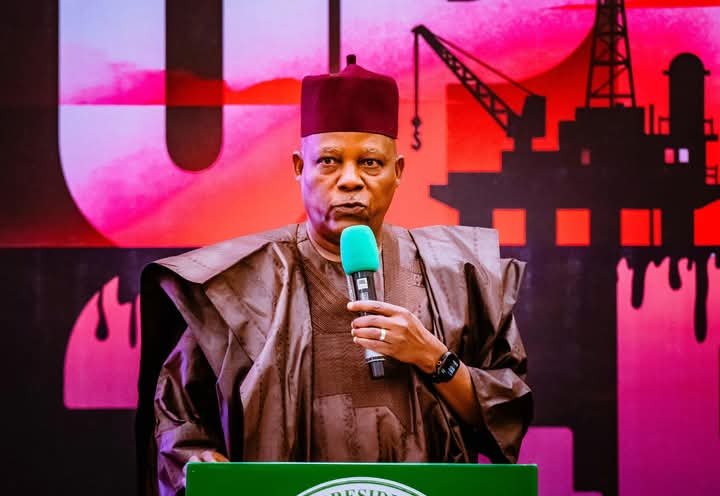Vice President Kashim Shettima has revealed that former Attorney General of the Federal and Minister of Justice, Mohammed Adoke, former Speaker of the House of Representatives, Hon. Aminu Tambuwal, and a Senior Advocate of Nigeria, Kabiru Turaki prevailed on former President Jonathan when he tried to impeach him when he was the Governor of Borno State.
Shettima stated this at the public presentation of a book titled; “OPL 245: Inside Story of the $1.3 billion Nigerian Oil Block”, authored by Adoke.
He explained that in the last four years of the Jonathan administration, he was the first most demonised serving governor and “was a public enemy number one.”
Shettima stated: “Former President Goodluck Jonathan, with whom we have sheathed the sword and have now recalibrated our relationship, was mooting the idea of removing the Borno governor and Aminu Tambuwal, the then Speaker of the House of Representatives has the courage to tell the President that Your Excellency, you don’t have the power to remove an elected councilor.
“The President was still not convinced. He mooted the idea at the federal executive council. I admire Mr. Mohammed Bello Adoke for his courage and for his conviction and for his capacity to stand for what he believes in.
“He told the president, “Mr. President, you do not have the power to remove a governor, not even a councilor.
“They sought the opinion of another SAN in the cabinet, Kabiru Turaki, who concurred with the opinion of a senior colleague. That was how the matter was laid to rest. That was how my relationship with Adoke and Tambuwal became eternally sealed.”
Shettima, however, called for transparency and accountability in Nigeria’s public service, urging former and current public officials to summon the courage to document their life and stewardship while in service.
He noted that public servants live under perpetual scrutiny, as life itself is a litigation with no end and no final adjournment in the pursuit of justice.
Shettima noted: “Each of us who has had the privilege of serving this country owes the people an account of our stewardship. Our stories are not ours alone. They belong to the nation. They belong to history.”
He described the culture of secrecy in Nigeria’s public institutions as a form of silence that must be broken.
“There is silence to preserve relationships. There is silence to protect secrets too delicate to disclose. And there is silence for memories we would rather forget. But as a generation of leaders, we must summon the courage to document our journeys,” he said.

